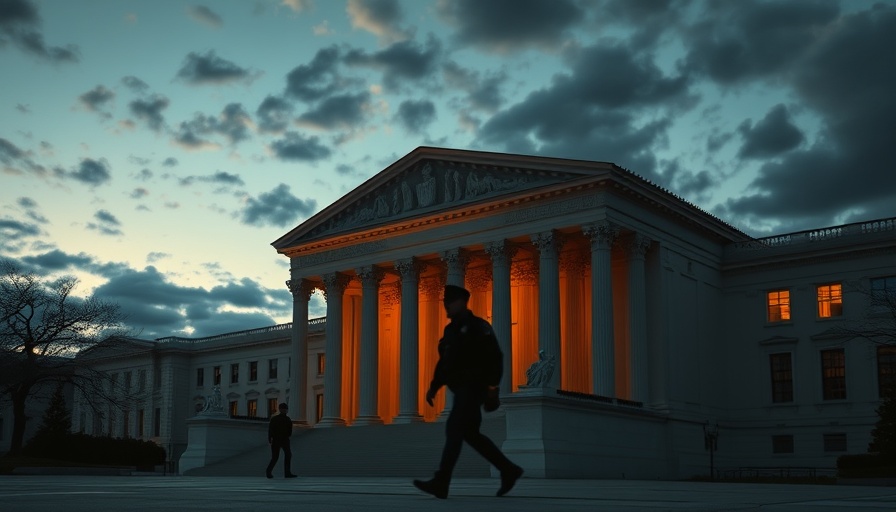
The Supreme Court's Crucial Decision on Deportation
In a significant move, the U.S. Supreme Court temporarily halted deportations under the controversial wartime Alien Enemies Act. The decision, announced early Saturday, aims to shield a group of migrants from imminent removal while the justices deliberate on the implications of this powerful act. The order reflects the growing legal turmoil surrounding immigration policy, particularly as it pertains to those without due process rights.
Understanding the Alien Enemies Act: A Historical Perspective
The Alien Enemies Act, enacted in 1798, grants the U.S. government the authority to detain and deport foreign nationals during wartime. This law has been rarely invoked, but it became a focal point following President Trump's assertion that Venezuelan migrants, aged 14 and older, could be deported due to suspected gang affiliations. Such deployment of this antiquated law raises questions about the balance between national security and individual rights.
Context: Recent Legal Developments
The Supreme Court's decision follows multiple rulings in lower courts, including a critical denial by the Fifth Circuit Court of Appeals of the migrants' request for a temporary restraining order. This rapid succession of legal activity highlights the urgency felt by those at risk of deportation. The American Civil Liberties Union (ACLU) played a pivotal role, calling attention to the alleged violations of rights that migrants faced.
The Human Impact of Deportation Policies
Central to this legal battle are the real-life implications for Venezuelan men detained at the Bluebonnet Detention Center in Texas. Many families assert their members have been unjustly labeled as gang affiliates without proper evidence or legal representation. Reports indicate that detainees were being loaded onto buses for deportation, intensifying fears of an imminent and unjust removal.
Political and Social Responses
California's immigration policies have sparked intense debate nationwide. Critics argue that the methods employed here echo a troubling trend toward excessive power granted to federal authorities at the expense of individual rights. Supporters, however, view these measures as necessary safeguards for national security. The dissenting opinions from Justices Clarence Thomas and Samuel Alito underscore the polarized nature of this issue, which resonates deeply within political discourse.
Looking Ahead: What’s Next for Immigrants?
The Supreme Court's pause allows for a more thorough consideration of the legality and ethics of deportation under the Alien Enemies Act. This pivotal moment presents an opportunity for the Court to redefine how the laws governing immigration intersect with humanitarian principles. In the interim, the fate of those in detention hangs in the balance as advocates continue to fight for their rights amid a fierce national conversation on immigration policy.
The Broader Implications for U.S. Immigration Policy
The case highlights the crucial intersection of immigration, law, and civil rights. As such, the legal framework surrounding deportation can either reinforce or undermine justice, depending on the broader actions taken by the government and the courts. The societal ramifications of such decisions cannot be overlooked, as they resonate deeply within communities beyond the immediate legal battles.
Take Action: Engage with Immigration Advocacy
As this Supreme Court case unfolds, residents and advocates alike are encouraged to remain informed and involved. Understanding the implications of these rulings helps foster a more equitable approach to immigration policies and human rights in Pennsylvania and beyond. Reach out to local organizations, participate in community discussions, and advocate for fair treatment of all individuals regardless of their background.
 Add Row
Add Row  Add
Add 




 Add Row
Add Row  Add
Add 

Write A Comment